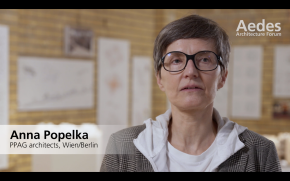Space influences us and we influence space. Within the infinite ‘space of possibilities’ of architecture, PPAG architects are permanently searching for relevance and social utility, tracking down the architectural expression of the respective society, the 'necessary new' in all its complexity. The exhibition is a plea for an unbiased, brave look at architecture and urban development. A view that sees development as a necessity, even if it surprises and irritates at first glance. Especially in view of the current global challenges, we need the courage to take alternative paths. The office's work is based on trust in the collective planning abilities; on the fact that through intensive engagement and thinking ahead, solutions can be found for a good future for all of us.
The diversity of the ‘space of possibilities’ is presented in a special way in the exhibition of PPAG architects at the Aedes Architecture Forum. The gallery space itself is transformed into a sort of space of possibilities, in which PPAG explore the spectrum of what is possible based on a wide range of projects. Plans, models, films and 1:1 objects are displayed. The projects presented push the boundaries and exhaust their realm, regardless of typology, scale, age, price range or realisation – in Ecuador, Northern Macedonia, Norway, Yakutsk, Vienna or Berlin.
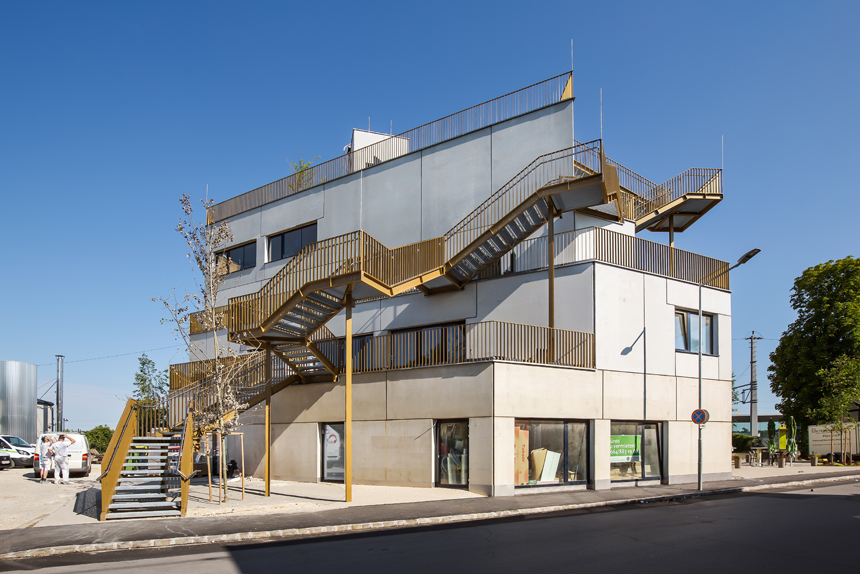
Residential and office building with public terrace, Pah-Cej-Kah, Deutsch Wagram, Austria, 2017 © Paul Bauer
The aim of the exhibition is to contribute to expanding the collective architectural space of possibilities for both architects and non-architects. PPAG strive to animate not only the professional audience, but, explicitly, also the broader public to examine the questions of today. PPAG thus shows the direction in which our built environment might and can develop: in a future that brings a better life for everyone, despite all the new challenges.
This is already the architecture studio’s second exhibition at the Aedes. In the exhibition titled Do You Really Want to Live Like Your Mother? in 2017/18, PPAG addressed contemporary housing construction, a central responsibility of growing cities. The exhibition this time deals with another challenge of our time: the demand for quality, beauty, and sophistication in a globalised world defined and standardised by the market economy. PPAG’s thesis: a society always can and must afford good architecture – without compromises. High-quality architecture is nothing other than built appreciation that is returned positively by society.
The overall approach of PPAG architects is prototypical: an innovative design based on the notion of how future life will unfold in the architecture. It is about contrasting the familiar with an emerging ‘necessarily new’, in which it is possible to live in a better way. On this topic, office founders Anna Popelka and Georg Poduschka say: ‘After nearly two years of the pandemic, we as a society have more experience with in the “other” than ever before.’ PPAG comprehend architecture as an interdisciplinary examination in which very diverse contents, conditions, and disciplines are brought together and materialised. Architecture permeates all areas of life and influences our daily activities. PPAG would thus like to show what the built environment can be when one as an architect actually realises what is conceivably possible and makes it part of everyday reality.
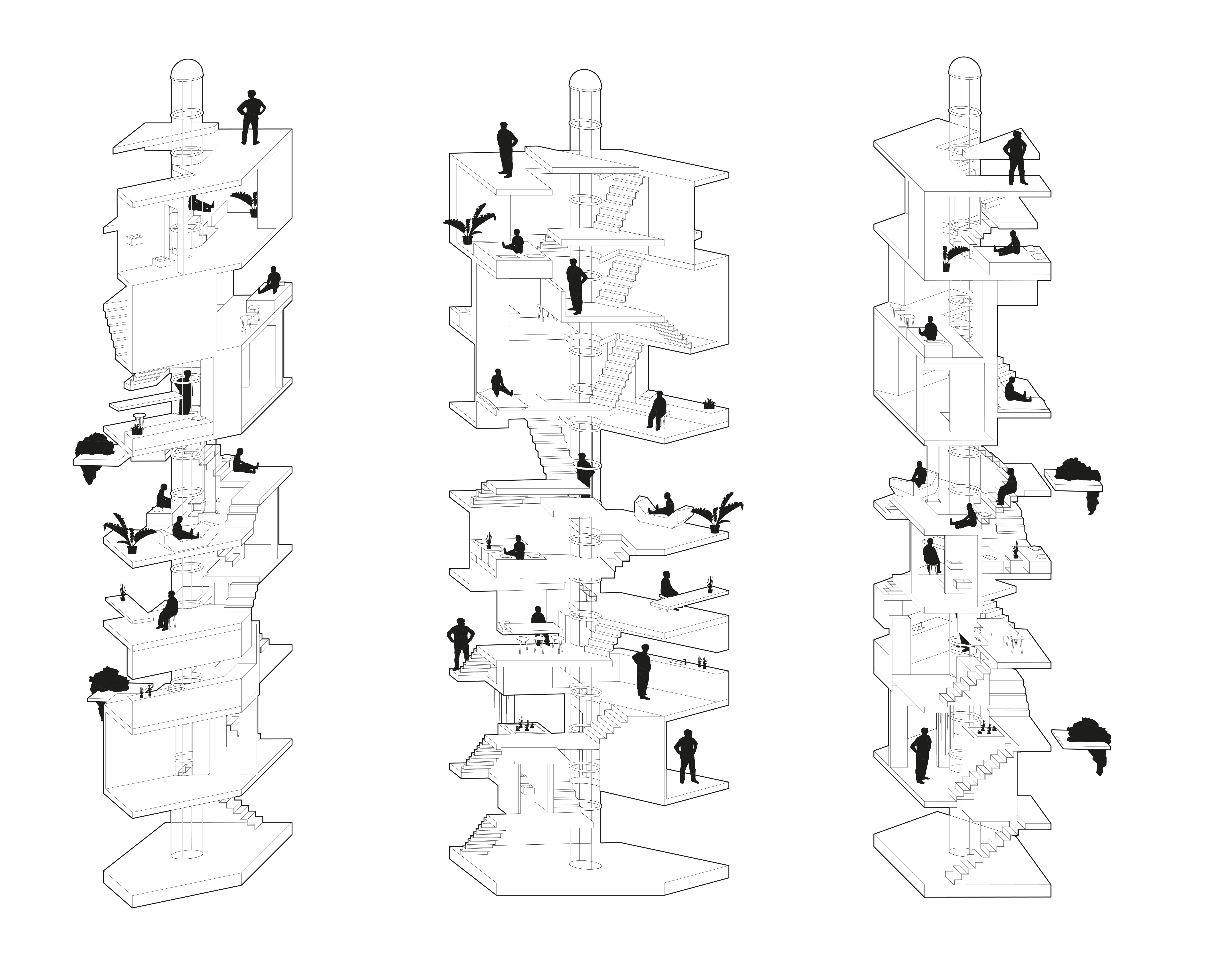
Nadelwohnung, Caroline-Michaelis-Straße, Berlin, under construction. © PPAG architects
The Exhibition
Based on forty selected projects by the architecture studio, both realised and unrealised, light is shed on the topic—without being merely a display of works. Between what is possible and what could be possible, inside as well as on the courtyard, PPAG architects show how architecture makes an impact, and what atmospheres it can develop. A composition of models ranging from a scale of 1:1 to 1:1000 is supplemented by an extensive arrangement of drawings and photos. Various 1:1 set-ups from current projects demonstrate what good cooperation with skilled craftsmanship can achieve.
Projects (Selection)
The Längenfeldgasse Primary and Vocational School is a new building in densely built-up Gründerzeit Vienna. In all consistency with six storeys and an open space that develops in cascades of terraces on the building. The layout and spatial arrangements are oriented towards the needs of contemporary pedagogy, where project work and independent learning stand in the foreground, instead of instructive lessons.
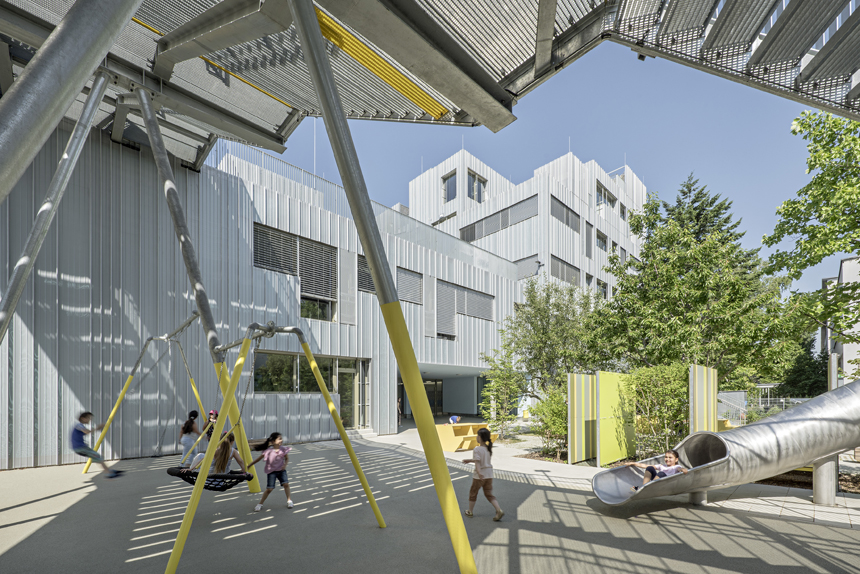
Längenfeldgasse School, Vienna, 2020. © Hertha Hurnaus
Urban Living denotes a prototype for a dense, social ‘city in the city’. PPAG architects developed a building as an urban district with housing and mixed uses based on a specific plot of land in Berlin-Neukölln. In the belly of the deep building, there is a sports hall, a dance room, and space for local production. It is a building for a new form of urban cohabitation. The flats are given flexible spaces that can be interconnected temporarily in individual living situations and thus offer adjustable housing options for a cross-section of the population.
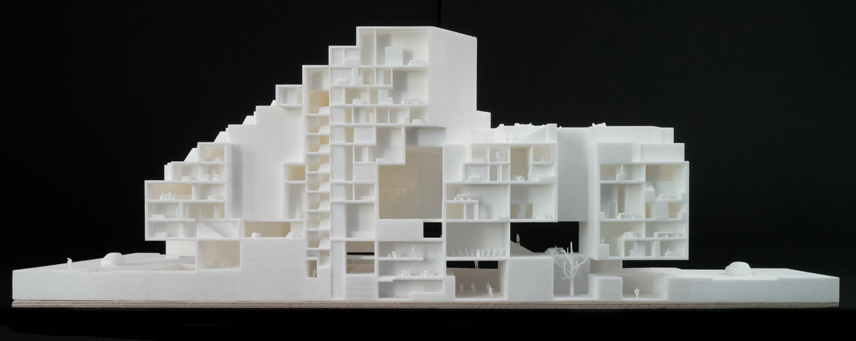
Urban development/housing, Urban Living, Briesestraße, Berlin, 2013. © PPAG architects
The inn and upscale restaurant Steirereck am Pogusch in the Austrian Alps brings a down-to-earth quality, haute cuisine, high-tech work processes, sustainable agriculture, and a luxury hotel business together in one structure. The supra-regionally well-known inn has been expanded on a large scale, but largely invisibly. PPAG also designed numerous details, such as organomorphic door handles, 3D-printed washbasins, and spatially effective wooden vertical blinds, which give the project the dimension of a sort of cutting-edge total work of art – and transport visitors to an unusual mountain world.
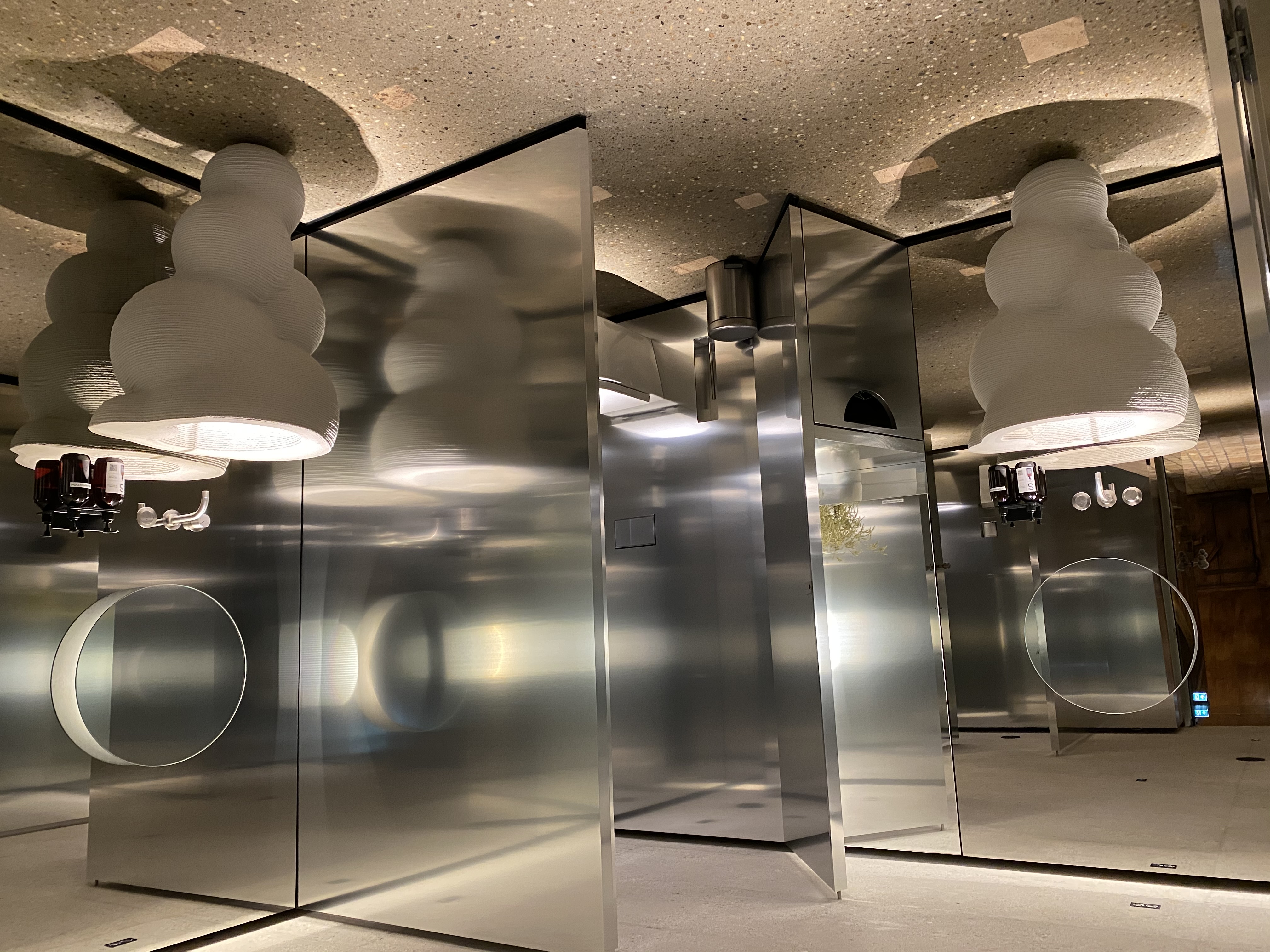
Sink, Steirereck am Pogusch, Austria, 2021. © PPAG architects
The Architecture Studio
Anna Popelka and Georg Poduschka jointly manage PPAG architects (Vienna/Berlin) along with their team. Since the studio’s establishment in 1995, they have worked continuously in the field of the research and development of architecture in the broadest sense, with the aspiration of also realising innovations. From furniture making to urban development, the respective insights are transferred and developed further from one project to the next.
Even though the entire field of architecture is deliberately addressed, in the last few years, focuses on the construction of housing and educational facilities have emerged: such as the Residential Hill for Europan 6 and the Sonnwendviertel Educational Campus in Vienna (Austria), the Slim City in Aspern (Austria), or the Secondary School in Sauland (Norway), as well as special projects like the Pah-Cej-Kah office and commercial building in Deutsch-Wagram (Austria) or the Steirereck Restaurant in Vienna (Austria). The most recently completed projects are the Residential and Office Building on Lützowstraße in Berlin and the Quartiershaus OPEN UP! and the Längenfeldgasse Primary and Vocational School in Vienna. In Berlin, PPAG is currently constructing a school building for an integrated secondary school, a grammar school on the Allee der Kosmonauten, and a small, refined residential ensemble at Nordbahnhof.
The architecture studio has received numerous national and international awards, including the Prize of the City of Vienna for Architecture, the Adolf Loos State Prize for Design, the Hans Hollein Art Prize for Architecture, and several nominations for the Mies van der Rohe Award of the European Union.
Aedes Catalogue
German/English, 10€
> Order here
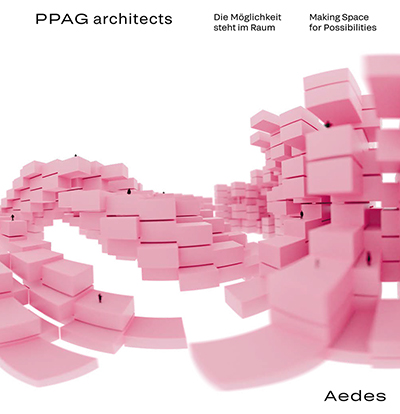
Made possible with the generous support of
Österreichisches Bundesministerium für Kunst, Kultur, öffentlicher Dienst und Sport

